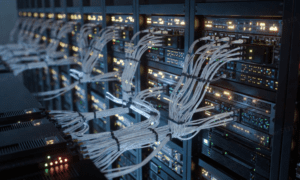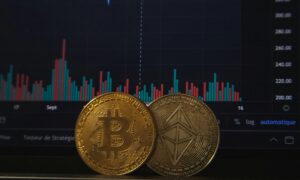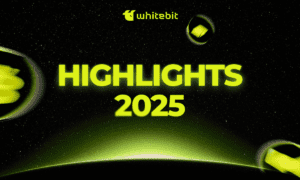As urban areas around the globe continue to expand, managing city resources efficiently has become a significant challenge. With the advent of innovative technologies, blockchain has emerged as a promising solution to streamline urban resource management. Blockchain technology, known for its decentralized, transparent, and secure nature, offers a unique approach to addressing inefficiencies in managing urban assets.
What is Blockchain Technology?
At its core, blockchain is a decentralized digital ledger that records transactions across multiple computers. These transactions are grouped into blocks and linked chronologically, forming a chain. Blockchain’s inherent transparency and security make it an ideal tool for managing complex systems involving multiple stakeholders. The technology ensures that data is immutable and traceable, providing trust without the need for intermediaries.
The Growing Demand for Efficient Resource Management
Urban areas are home to over half of the global population, and this number is expected to increase significantly in the coming decades. As cities grow, so do the challenges associated with managing resources such as energy, water, transportation, and waste. Traditional systems often struggle with inefficiencies, data silos, and lack of accountability. Blockchain can address these issues by creating a unified and transparent system for tracking and managing resources.
Applications of Blockchain in City Resource Management
Energy Distribution and Management
Blockchain can revolutionize how cities manage energy resources. By enabling peer-to-peer energy trading, residents can buy and sell surplus energy directly to each other. This approach reduces dependency on centralized grids and encourages the use of renewable energy sources.
Smart contracts on the blockchain can automate energy transactions, ensuring fair pricing and accurate billing. For instance, a household with solar panels can sell excess energy to a neighbor, with the transaction recorded transparently on the blockchain.
Water Resource Management
Efficient water management is crucial for sustainable urban living. Blockchain can help monitor water usage, detect leaks, and optimize distribution. Sensors connected to the blockchain can provide real-time data on water consumption, enabling authorities to make informed decisions.
By recording water usage transparently, blockchain also encourages accountability among consumers. Municipalities can use blockchain to track water distribution and ensure equitable access for all residents.
Waste Management
Waste management is a critical aspect of city resource management. Blockchain can streamline waste collection processes, track recycling efforts, and reward individuals for sustainable practices. By using blockchain-based tokens, cities can incentivize residents to recycle and properly dispose of waste.
Moreover, blockchain can provide a transparent record of waste management activities, helping authorities identify inefficiencies and improve operations.
Transportation Systems
Cities face significant challenges in managing transportation systems, including traffic congestion and pollution. Blockchain can enhance transportation management by providing real-time data on traffic flow and vehicle usage. It can also facilitate carpooling and shared mobility services through decentralized platforms.
For public transportation, blockchain can streamline ticketing and payment systems, reducing fraud and ensuring transparency. Additionally, smart contracts can automate maintenance schedules and allocate resources efficiently.
Land and Asset Management
Managing urban land and assets often involves complex processes and multiple stakeholders. Blockchain can simplify these processes by providing a transparent and immutable record of property ownership and transactions. This reduces disputes and ensures accountability.
Governments can use blockchain to track public assets such as parks, buildings, and infrastructure, ensuring they are maintained and utilized efficiently.
Benefits of Using Blockchain in Urban Resource Management
Transparency and Accountability
Blockchain’s transparent nature ensures that all transactions are visible to authorized parties. This reduces the likelihood of fraud and corruption, as every action is recorded and traceable.
Efficiency and Cost Reduction
By automating processes through smart contracts, blockchain eliminates the need for intermediaries, reducing costs and improving efficiency. For example, automating energy billing or waste collection schedules can save time and resources.
Enhanced Data Security
Blockchain’s decentralized structure makes it highly secure against cyberattacks. Data stored on the blockchain is encrypted and distributed across multiple nodes, ensuring its integrity.
Sustainability
Blockchain encourages sustainable practices by incentivizing behaviors like recycling and using renewable energy. It also helps optimize resource allocation, reducing waste and environmental impact.
Challenges in Implementing Blockchain
While blockchain offers numerous benefits, implementing it in urban resource management comes with challenges. These include:
- High Initial Costs: Setting up blockchain infrastructure requires significant investment in technology and expertise.
- Scalability Issues: Managing large-scale urban systems on blockchain can be challenging due to scalability limitations.
- Regulatory Hurdles: The lack of standardized regulations for blockchain technology can hinder its adoption.
- Data Privacy Concerns: While blockchain ensures transparency, it also raises concerns about the privacy of sensitive data.
Case Studies: Blockchain in Action
Several cities worldwide are exploring blockchain for resource management:
Amsterdam, Netherlands:
The city uses blockchain to track energy usage in a smart grid pilot project. Residents can trade energy within their community using a blockchain platform.
Dubai, UAE:
As part of its Smart Dubai initiative, the city is implementing blockchain to manage public services, including land registry and transportation.
Shanghai, China:
Blockchain is being used to monitor waste management and improve recycling rates in the city.
The Future of Blockchain in Urban Resource Management
The potential of blockchain to transform urban resource management is immense. As technology advances, it will become more scalable and cost-effective, making it accessible to cities of all sizes. Integrating blockchain with other technologies like the Internet of Things (IoT) and Artificial Intelligence (AI) will further enhance its capabilities.
In the coming years, we can expect more cities to adopt blockchain for managing their resources efficiently. Governments, private sectors, and communities must collaborate to overcome challenges and unlock the full potential of this revolutionary technology.
Conclusion
Blockchain technology offers a powerful solution to the complex challenges of urban resource management. By enhancing transparency, efficiency, and sustainability, it enables cities to optimize the use of their assets and improve the quality of life for residents. Although challenges remain, the growing interest and successful pilot projects demonstrate that blockchain has the potential to reshape how cities operate. As we move toward a more connected and sustainable future, blockchain will undoubtedly play a pivotal role in building smarter cities.



































